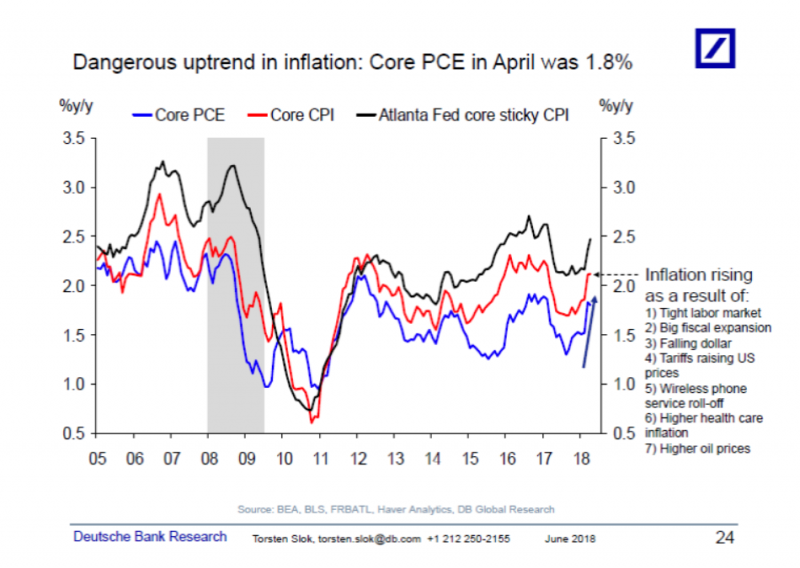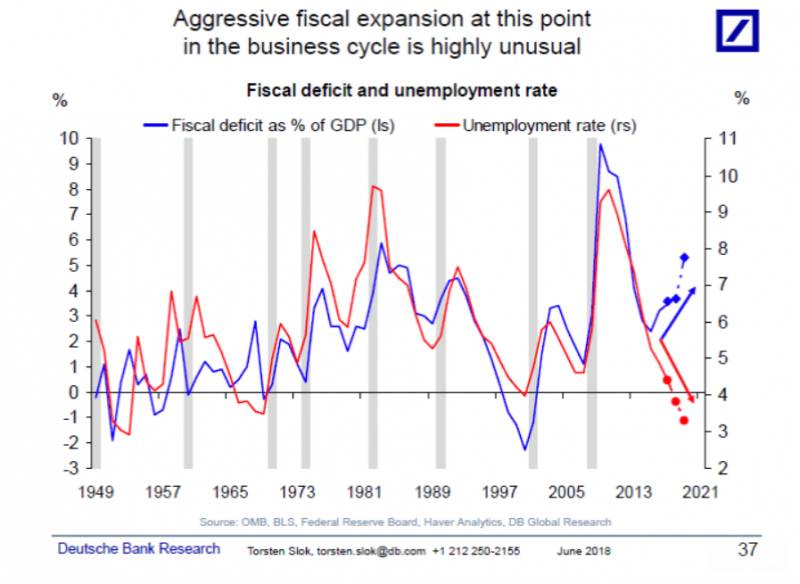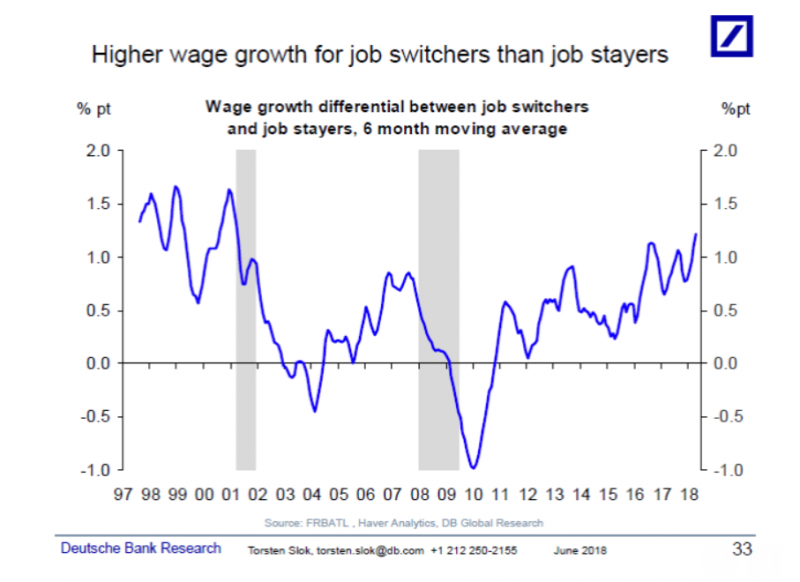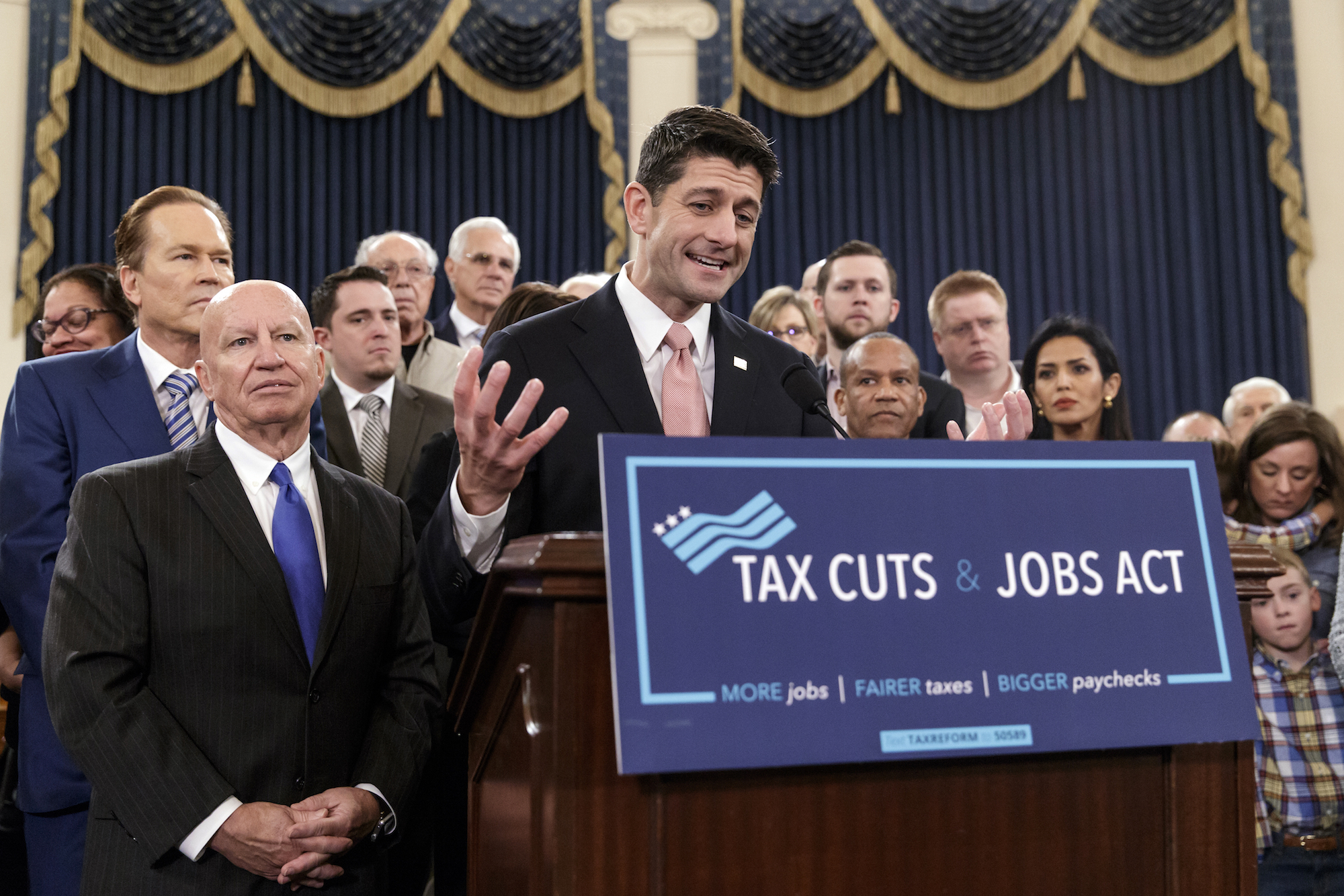- The labor market is tightening, with unemployment in May hitting the lowest level since 2000.
- Trump recently signed into law massive tax cuts and federal spending increases.
- The trend is raising risks of overheating, according to economists.
The unemployment rate last month fell to the lowest level in 18 years at 3.8%, according to federal data out Friday. While President Donald Trump touted the report, the dropoff leaves some concerned that the US economy is approaching an unsustainable growth rate.
“The economy is not necessarily overheating quite yet,” Torsten Sløk, chief international economist at Deutsche Bank, told Business Insider. “But if you look at all of the indicators combined, you do get somewhat worried about the overall picture.”
He said many indicators suggest a company “bidding war” for workers could be around the corner. Wage growth is mostly happening when workers switch jobs, making it harder for companies to keep positions filled. The trend is bringing a peak number of people back to the labor market, which could add further pressure.
Furthering stoking those worries, Trump recently signed into law fiscal stimulus policies, including $1.5 trillion tax cuts and a $1.3 trillion spending package. Aggressive fiscal expansion at this point in the business cycle is “highly unusual” and bolsters concerns, Sløk said.
"Even though the unemployment rate is very low, politicians have decided to do a big fiscal expansion," he said. "And that is of course increasing the risk [of overheating]."
A tight labor market and fiscal expansion are among the top factors behind a "dangerous" upward inflation trend, Deutsche Bank said in a report, with prices rising over the last three months. Core personal consumption expenditures, the Federal Reserve's favorite inflation indicator, hit 1.8% in April. 
White House economic adviser Larry Kudlow (shortly before he was tapped for the post) and former Trump campaign adviser Stephen Moore wrote an op-ed in the Wall Street Journal earlier this year in defense of recent fiscal stimulus amid quick economic growth. They argued that "booming economies lower rather than increase prices."
"For workers this is the best of all worlds: A surge in capital investment, higher corporate productivity and profits, and a tight labor market," they wrote. "If this is 'overheating,' we want much more of it-and we think the record 155 million Americans in the workforce would agree with us."



